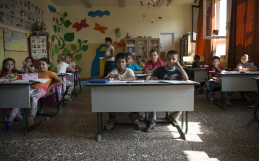Personalized Learning with Simulations
The Rise of Personalized Learning
Personalized learning has gained significant traction in educational institutions and among individuals due to its focus on tailoring the learning experience to meet each learner’s unique needs. This approach recognizes that various factors influence learning, including individual experiences, cognitive awareness, and cultural background. As a result, personalized learning aims to create a more engaging and effective educational environment.
Personalized learning is an educational approach that tailors the learning experience to each student’s unique skills, abilities, preferences, and background, aiming to enhance engagement, achievement, and overall well-being.
The desire for greater engagement and improved outcomes drives the shift towards personalized learning. Traditional one-size-fits-all educational models often fail to address learners’ diverse needs, leading to disengagement and suboptimal learning experiences. In contrast, customized learning strategies allow for flexibility in pace, content, and learning styles, fostering a more inclusive and motivating atmosphere.
Moreover, the rise of technology has facilitated the implementation of personalized learning. Digital tools and platforms enable educators to gather student performance and preferences data, allowing for more tailored instructional methods. This data-driven approach enhances learning and empowers students to take ownership of their educational journeys.
The Place and Role of Simulations in Personalized Learning
Simulation plays a crucial role in personalized learning by providing immersive and interactive experiences that can be customized to individual learning needs. Through simulations, learners can engage in realistic scenarios that mimic real-world challenges, allowing them to apply theoretical knowledge in practical contexts.
One of the key benefits of simulation-based learning is its ability to create a safe environment for experimentation. Learners can make decisions, face consequences, and reflect on their actions without the risks of real-life situations. This experiential learning model enhances retention and understanding, as learners are more likely to remember experiences that involve active participation.
Furthermore, simulations can be designed to adapt to the learner’s progress, offering challenges appropriate to their skill level. This adaptability ensures that learners remain engaged and motivated as they are continually pushed to expand their capabilities without feeling overwhelmed.
FLIGBY as a Personalized Learning Tool
FLIGBY (Flow Is Good Business for You) is a leadership development simulation that exemplifies the principles of personalized learning. Developed under the guidance of Prof. Mihaly Csikszentmihalyi, FLIGBY integrates the concept of flow—a state of deep engagement and focus—into its design, making it a powerful tool for personal and professional growth.
FLIGBY allows participants to navigate complex business scenarios, making decisions that impact the simulation’s outcome. This interactive format enhances engagement and provides immediate feedback, enabling learners to reflect on their choices and learn from their experiences. The feedback on the game results can be tailored to address specific learning objectives, making it suitable for various contexts, from corporate training to academic settings.
Moreover, FLIGBY’s ability to combine traditional training methods with simulation creates a blended learning experience. This approach ensures learners benefit from theoretical knowledge and practical application, holistically reinforcing their understanding and skills.
In conclusion, integrating personalized learning with simulation tools like FLIGBY significantly advances educational practices. Focusing on individual needs and providing immersive experiences enhance engagement and effectively prepare learners for real-world challenges.
Unique Features of FLIGBY and Their Role in Personalized Learning
- Adaptive Learning Pathways – FLIGBY adjusts the complexity of scenarios based on the participant’s decisions and performance. This adaptability ensures that learners are consistently challenged appropriately, promoting growth while preventing frustration.
- Real-Time Feedback – Participants receive immediate feedback on their choices within the simulation. This instant response allows learners to reflect on their decisions and understand the consequences, fostering a more profound learning experience tailored to their individual learning curves.
- Scenario-Based Learning – The simulation immerses users in realistic business scenarios that require critical thinking and decision-making. This contextual learning helps students relate theoretical concepts to practical applications, enhancing their understanding in a personalized manner.
- Self-Reflection Opportunities – FLIGBY encourages participants to analyze their actions and outcomes through guided reflection prompts. This focus on self-assessment helps learners identify strengths and areas for improvement, promoting a personalized approach to skill development.
- Blended Learning Integration – FLIGBY incorporates a blended learning model that combines the simulation with additional individual coaching, group training, and workshops. This integration reinforces the simulation’s messages personally, allowing learners to deepen their understanding and apply concepts in various contexts.
These features collectively ensure that FLIGBY supports personalized learning by adapting to individual learner needs, promoting engagement, and facilitating meaningful reflection and application of knowledge.





